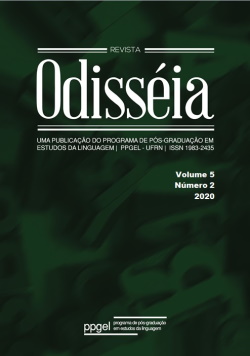Dalton Trevisan, João Antônio and Rubem Fonseca
expressions of violence and eschatology in the Brazilian short story
DOI:
https://doi.org/10.21680/1983-2435.2020v5n2ID21507Keywords:
Brazilian narrative, Violence, EschatologyAbstract
This article aims to identify elements of violence and eschatology in the tales of Dalton Trevisan, João Antônio and Rubem Fonseca as specific terms that stem from the industrialization process of the post-war and the subsequent implementation of the military dictatorship in the country. In this sense, the lack of control that occurs due to urban growth contributes to the various manifestations of misdemeanor and criminality to expand in an unimaginable dimension. This enables the stories chosen for the purpose of this article to function as representations that identify a universe of disorder, sadism, and violence. Thus, A velha querida, by Dalton Trevisan, Leão-de-chácara, by João Antônio, and Feliz Ano Novo, by Rubem Fonseca, can function as excerpts from the eschatology that seeks to confront the political system and identify its deviations as the only tool available to these writers.
Downloads
Downloads
Published
How to Cite
Issue
Section
License
Thisa work has been licensed under Creative Commons - Atribuição - NãoComercial - CompartilhaIgual 3.0 Não Adaptada.


















